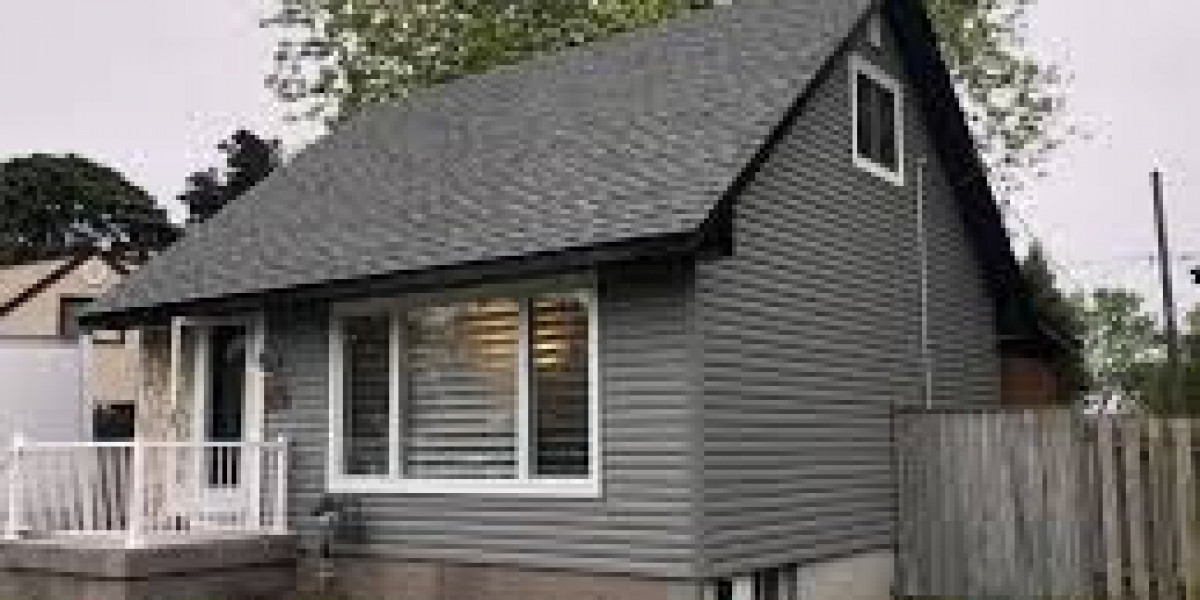In today’s world, roofing is more than just a functional aspect of a home; it’s becoming a focal point for innovation, energy efficiency, and sustainability. With the rise of technology, the traditional roof is being transformed into a smart, high-tech system designed to protect your home while enhancing its efficiency. This is the future of roofing, known as "smart roofing," and it's changing the way we think about our homes.
Understanding Smart Roofing: What It Means
Smart Roofing solutions refers to the integration of advanced technologies into roofing systems to improve energy efficiency, sustainability, and overall performance. Unlike traditional roofs, which simply act as a barrier against the elements, smart roofs can adapt to environmental conditions, generate energy, and even detect issues before they become significant problems.
Incorporating a variety of sensors, energy-efficient materials, and smart features, smart roofs are designed to work in harmony with the home’s structure and the surrounding environment. From solar shingles to moisture-detecting sensors, smart roofs are revolutionizing how we approach roof installation and maintenance.
Key Technologies Behind Smart Roofs
Energy Efficiency Features
One of the most compelling reasons to invest in a smart roof is its energy-saving capabilities. Smart roofs incorporate features like:
Solar Shingles and Panels: These innovative technologies allow the roof itself to generate energy, making your home more self-sufficient. Solar shingles blend seamlessly with traditional roofing materials, creating a clean, modern look while harnessing the sun’s power to reduce electricity costs.
Reflective Coatings and Energy-Saving Tiles: Many smart roofs are equipped with reflective coatings or specially designed tiles that help regulate the home’s temperature. These materials reflect heat away in the summer and retain warmth in the winter, reducing the need for artificial heating and cooling.
Smart Ventilation and Insulation Systems: Advanced insulation and ventilation technology helps keep your home at a consistent temperature, reducing energy consumption. These systems can be controlled remotely and adjusted to the home’s needs, maximizing comfort and minimizing waste.
Sensors and IoT Integration
Smart roofs are also equipped with sensors and Internet of Things (IoT) technology to provide real-time data and automate roof functions. Some key features include:
Weather Monitoring Sensors: These sensors detect weather conditions such as temperature, humidity, and storm intensity. In the event of extreme weather, the roof can make adjustments to protect your home, such as activating weather-resistant barriers or draining excess water.
Moisture Detection: Water damage is one of the most significant threats to a home. Smart roofs use sensors to detect moisture levels, alerting homeowners to leaks or damp spots before they cause significant damage to the structure.
Automated Roof Adjustments: In some systems, the roof can adjust itself based on environmental factors. For example, it may tilt or close vents to minimize heat loss or protect the home from storms.
Smart Materials
Smart roofing materials are also making significant strides, focusing on durability and sustainability. Some of the latest innovations include:
Self-Healing Materials: These materials are capable of repairing minor cracks and damage on their own, extending the lifespan of your roof and reducing the need for costly repairs.
Eco-Friendly Options: Green roofs, made with plants or recycled materials, are becoming more popular. These environmentally friendly roofs help reduce heat island effects, absorb rainwater, and provide natural insulation.
The Benefits of Smart Roofing
Enhanced Energy Efficiency
One of the most significant advantages of smart roofing is its ability to lower energy costs. By incorporating energy-efficient materials, smart roofs help regulate a home's internal temperature, reducing reliance on heating and cooling systems. Over time, this can result in substantial savings on utility bills.
Long-Term Cost Savings
Though the upfront cost of installing a smart roof may be higher than traditional roofing, the long-term savings are worth it. Thanks to their durability, energy efficiency, and low-maintenance features, smart roofs offer substantial cost savings over the years. For instance, you can save money on energy bills, reduce the need for repairs, and even qualify for tax incentives related to eco-friendly home improvements.
Sustainability and Environmental Impact
Smart roofs are not just good for your wallet; they’re also great for the environment. By reducing energy consumption and incorporating eco-friendly materials, smart roofs help reduce your home’s carbon footprint. Green roofs, in particular, play a vital role in urban sustainability, providing a natural habitat for wildlife and reducing stormwater runoff.
Improved Home Value
Homes equipped with smart features are becoming increasingly desirable. As smart technology continues to gain popularity, buyers are increasingly looking for homes that incorporate energy-efficient and technologically advanced features. Investing in a smart roof can significantly increase your home’s resale value.
Smart Roofing in Action: Real-World Applications
Residential, Commercial, and Industrial Uses
Smart roofing technology is being implemented across a variety of sectors. In residential homes, families are enjoying the benefits of solar shingles, moisture detection systems, and automated weather response systems. In commercial and industrial spaces, smart roofing helps reduce energy costs, increase building longevity, and contribute to sustainability goals.
Integration with Other Smart Home Technologies
Smart roofs work seamlessly with other home automation systems. For example, a smart roof can be connected to your home’s HVAC system to adjust ventilation based on the roof's real-time weather monitoring. This creates a holistic smart home experience that improves comfort, efficiency, and convenience.
Performance in Extreme Weather
Smart roofs are designed to perform well under extreme conditions. Whether it's the scorching heat of summer, heavy snowfalls, or intense storms, smart roofs are equipped to handle it all. Features like automated adjustments, weather-resistant materials, and moisture sensors help keep your home safe and protected during adverse weather conditions.
The Future of Smart Roofing: What's Next?
The future of smart roofing looks promising, with innovations continuing to evolve. Some of the upcoming trends include:
Integrated Solar Cells: Solar cells are becoming more integrated into the structure of the roof itself, offering higher efficiency and better aesthetics than traditional solar panels.
AI-Driven Roof Management: Future smart roofs could be powered by artificial intelligence, which could predict roof maintenance needs, optimize energy usage, and automate system adjustments based on a wide range of environmental factors.
Sustainable Roofing Materials: As the focus on sustainability grows, we can expect even more eco-friendly roofing materials, such as biodegradable shingles, that provide high performance without compromising the environment.
How to Choose a Smart Roof for Your Home
Choosing the right smart roofing system for your home involves several key factors:
Budget Considerations: While smart roofs can be a significant investment, they offer substantial long-term savings. It’s important to balance initial costs with the potential savings on energy bills and maintenance.
Material Selection: Different roofing materials offer various benefits. Consider your home’s climate, aesthetic preferences, and energy needs when selecting your roofing material.
Professional Installation: Smart roofing systems require specialized installation. Working with a trusted professional like Rama Siding ensures that your roof is installed correctly and functions at its best.
Why Choose Rama Siding?
At Rama Siding, we specialize in smart roofing solutions that integrate the latest technologies for maximum efficiency, durability, and sustainability. Our team of experts will guide you through the process of selecting the right smart roofing system for your home, ensuring that your roof not only enhances the beauty of your property but also contributes to energy savings and long-term value.
Conclusion
Smart roofing is changing the way we think about our homes, offering innovative solutions that enhance energy efficiency, sustainability, and durability. By incorporating advanced technologies such as solar panels, sensors, and smart materials, the next generation of roofs will protect your home while helping you save money and reduce your carbon footprint. As this technology continues to evolve, the future of roofing looks brighter and smarter than ever.
Ready to upgrade your roof? Contact Rama Siding today to learn how smart roofing can transform your home and improve your energy efficiency, comfort, and long-term savings.









